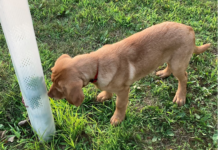COLUMBUS, Ohio – Is your horse vaccinated against West Nile virus?
Last year more than 100 horses became infected with the viral disease that infects the horse’s brain and spinal cord that could result in impairment or death.
While this is less than the 600 horses infected in 2002, horse owners should still protect their horses from this potentially devastating disease, said William Saville, Ohio State University Extension veterinarian.
Prepare. “Horse owners need to vaccinate their horses immediately to prepare for the upcoming mosquito season,” said Saville.
He said that it’s imperative that horses are vaccinated twice, three to six weeks apart for the initial vaccination.
Horses vaccinated last year need a yearly booster given in April.
Saville recommends that show horses, race horses and any other horses under intense training or stress be given two boosters annually in April and late July.
Anticipation. The threat of West Nile Virus is anticipated in all parts of Ohio this summer.
In addition to vaccinating their horses, owners can take steps to reduce exposure to mosquitoes.
Saville encourages horse owners to keep horses indoors during peak periods of mosquito activity. Lights should be kept off in the stable as this attracts mosquitoes to the area.
All birds should be kept away from the stable as these can serve as a host for the virus.
Choose a larvacide. Mosquito control products are available for the stable area.
Larvacides can be used to control the mosquito larvae before they develop into adults.
When choosing a larvacide or any pesticide, read the label and only use products labeled for the animal or for the area where the pesticide will be used.
Always follow the label directions for amounts, mixture and application directions.
Topical preparations containing mosquito repellents are available, but be sure to read the label for application directions.
Common sense. Saville also encourages horse owners to eliminate mosquito breeding areas around the farm to reduce mosquito numbers.
Mosquitoes breed in shallow water that stands for more than three days. This includes used tires, parked equipment, bird baths, buckets left outside, tarps, empty feed troughs, wheelbarrows and other places with stagnant water.
Mud puddles and low spots in driveways and barn lots should be drained or filled with gravel or dirt to reduce mosquito breeding sites.
Watch for signs. Saville also encourages horse owners to watch for early signs of the virus.
He said horses with clinical signs of West Nile Virus will show ascending paralysis and muscle vibrations.
He adds that these are also symptoms seen in other neurological diseases in horses such as rabies or botulism (food poisoning).
“It’s important to test horses showing these symptoms to confirm if they have West Nile Virus,” said Saville.
Get 4 Weeks of Farm and Dairy Home Delivered









